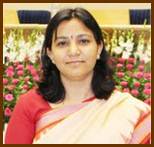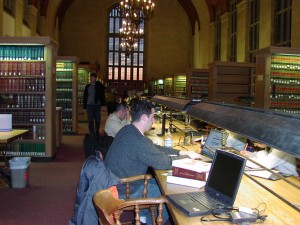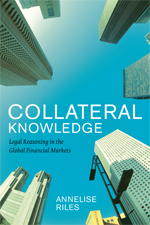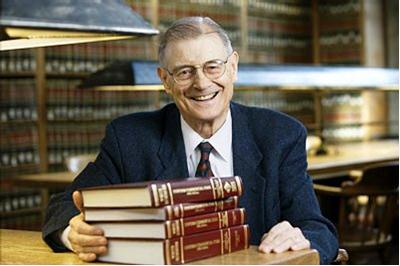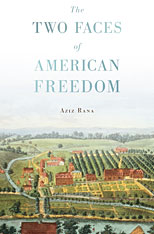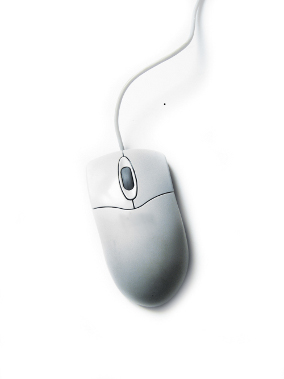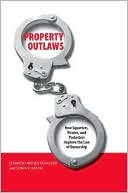Our colleagues at the University of St. Thomas Law School library have released “Scholarly Impact of Law School Faculties in 2012: Applying Leiter Scores to Rank the Top Third.” We’re happy to report that Cornell Law School’s score, using the protocols refined by Professor Brian Leiter, is ranked at number nine.
Gregory C. Sisk, Valerie Aggerbeck, Debby Hackerson, and Mary Wells explain that the Scholarly Impact Score measures the impact of a faculty’s legal scholarship on other legal scholars — the score looks at citations by other legal scholars, not by academic scholars as a whole. Moreover, it measures the impact of tenured faculty, not untenured faculty or faculty with a primary appointment in clinical teaching or teaching legal research and writing. The weighted score, upon which schools are rank-ordered, is twice the mean plus the median of each tenured faculty member’s citations in law reviews for the past five years (2007-2011).
The study identifies the ten most cited scholars at each school. At Cornell this year, they are (in alphabetical order) Gregory S. Alexander, Kevin M. Clermont, Michael C. Dorf, Theodore Eisenberg, Valerie Hans, Michael Heise, Robert A. Hillman, Jeffrey J. Rachlinski, Stewart J. Schwab, and Lynn Stout.
 Yesterday, November 19, Lynn Stout, Distinguished Professor of Corporate & Business Law at Cornell University Law School, gave a talk about her new book, The Shareholder Value Myth: How Putting Shareholders First Harms Investors, Corporations and the Public. William W. Bratton (Univ. of Pennsylvania Law School), James Cox (Duke Law School), and Todd Henderson (Univ. of Chicago Law School) spoke with Professor Stout.
Yesterday, November 19, Lynn Stout, Distinguished Professor of Corporate & Business Law at Cornell University Law School, gave a talk about her new book, The Shareholder Value Myth: How Putting Shareholders First Harms Investors, Corporations and the Public. William W. Bratton (Univ. of Pennsylvania Law School), James Cox (Duke Law School), and Todd Henderson (Univ. of Chicago Law School) spoke with Professor Stout.
